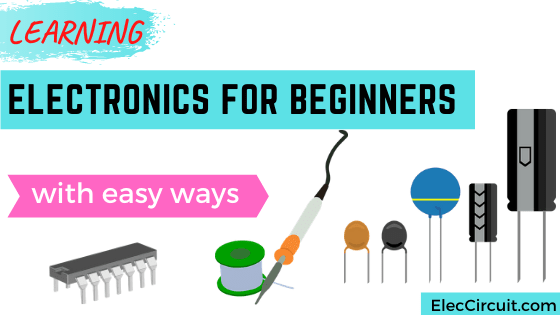
Best way to learn basic electronics
Are you interested in learning about basic electronics but not sure where to start? Whether you’re a complete beginner or someone looking to refresh their knowledge, mastering the fundamentals of electronics is essential for anyone wanting to delve deeper into the world of technology.
But what is the best way to learn basic electronics? In this article, we will explore some effective strategies to help you kickstart your journey into the exciting field of electronics.
1. Start with the basics
Before diving into complex circuits and components, it’s crucial to have a solid understanding of the basics. Concepts such as Ohm’s Law, voltage, current, resistance, and basic circuit analysis are the building blocks of electronics.
There are plenty of online resources, textbooks, and tutorials available that cover these fundamental concepts in an easy-to-understand manner. Take your time to grasp these concepts before moving on to more advanced topics.
2. Hands-on projects
One of the most effective ways to learn basic electronics is through hands-on projects. Building simple circuits and experimenting with different components not only reinforces theoretical concepts but also helps you develop practical skills.
You can start by purchasing a beginner’s electronics kit that includes components like resistors, capacitors, LEDs, and breadboards. There are also numerous DIY projects available online that you can try out to apply your knowledge.
3. Join a community
Learning electronics can sometimes be challenging, especially when you encounter roadblocks or have burning questions. Joining an online community or forum dedicated to electronics can be a great way to seek help, share experiences, and learn from others.
Platforms like Reddit, Stack Exchange, and Arduino forums are excellent places to connect with fellow electronics enthusiasts, ask for advice, and stay updated on the latest trends in the field.
4. Experiment and tinker
Don’t be afraid to experiment and tinker with different circuits and components. Building your own projects from scratch, troubleshooting issues, and trying out new ideas are valuable learning experiences that can help solidify your understanding of electronics.
Remember, making mistakes is all part of the learning process. The more you experiment, the more you will learn and grow as an electronics enthusiast.
5. Take online courses
If you prefer a structured learning approach, enrolling in online courses or tutorials can be a great way to learn basic electronics. Websites like Coursera, Udemy, and Khan Academy offer a wide range of courses tailored for beginners.
These courses typically cover topics such as circuit design, electronic components, soldering, and more. Many of them also include hands-on projects and quizzes to test your knowledge along the way.
6. Build a portfolio
As you progress in your electronics journey, consider documenting your projects and building a portfolio to showcase your skills. This can be a great way to demonstrate your expertise to potential employers, collaborators, or simply to track your progress over time.
Start a blog, create a YouTube channel, or contribute to online platforms like GitHub to share your projects with the world. Not only will this help you establish credibility in the field, but it can also open up new opportunities for networking and collaboration.
Conclusion
Learning basic electronics is a rewarding journey that requires dedication, patience, and a willingness to learn. By following the strategies outlined in this article and staying curious and proactive, you can master the fundamentals of electronics and embark on a fulfilling career or hobby in the field.